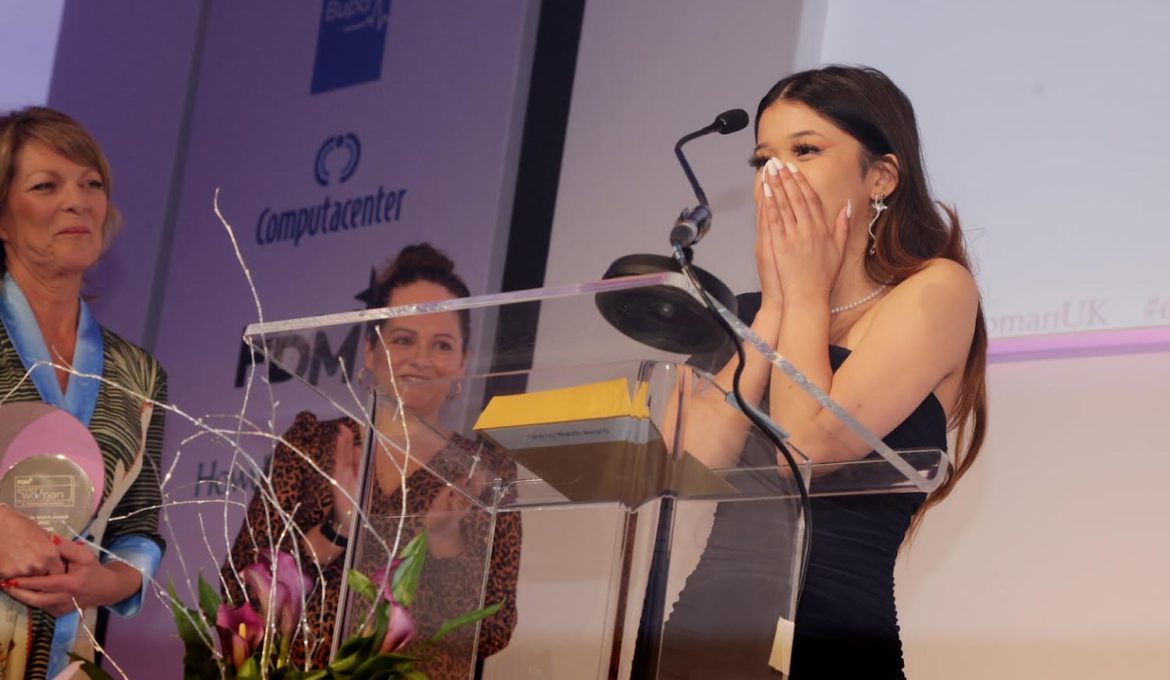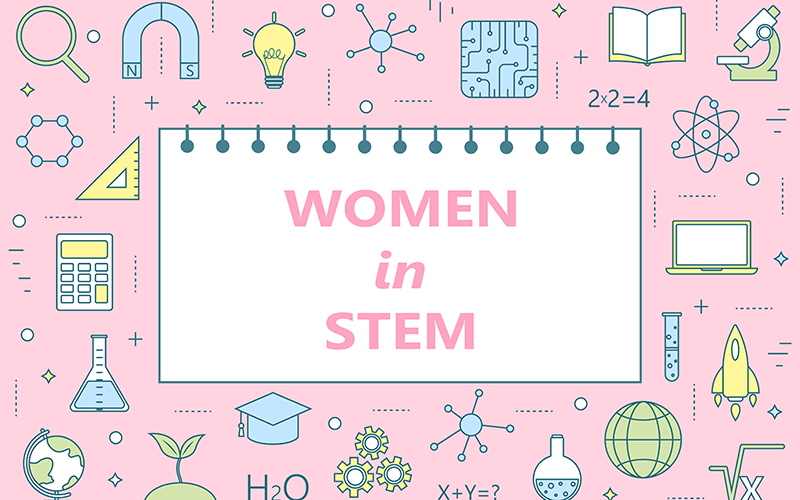Alarmingly, women make up just 14.5% of all engineers. Girls and women are systematically tracked away from STEM subjects throughout their education, limiting their access and opportunities to the fields in adult life. The Women’s Engineering Society state that girls and women make up less than 18% of higher apprentices in engineering and manufacturing.
This needs to change, and more women need to encouraged into STEM careers, but how can we break the bias? Student Circuit highlights the eight fundamental solutions to growing a female engineer, as initially stated by Helen Duncan, Content Marketing Specialist in RF, microwave, mmWave, 5G, wireless and semiconductors.
Student Circuit attended EuMW where Helen discussed her personal experience as a female in a male dominated industry. Having worked in the industry for a little less than a year myself, in this short time I have experienced what it feels like to be a small fish in a big pond. However, this feeling only comes to light when attending a show or conference and being confronted physically with the stark gender inequality in engineering. I can only imagine what it must feel like to be an even younger female, stepping foot in the industry for the very first time, or even making the decision that the industry is where they want to be.
Helen explained during her talk that eight key aspects are needed to grow and allow a female engineer to flourish. This begins as young as four or five, in primary school, where it’s vital to have a strong support network from parents and teachers, role models and mentors. Although we all have unconscious biases, and sometimes we can unintentionally discourage girls and women when it comes to pursuing a career in engineer, we all need to continue to educate ourselves about the disparities in our societies. Its important to question and correct our approaches.
Girls and women in STEM have fewer role models to inspire their interest in the field. This stems from seeing limited examples of female engineers, scientists and technologists in books, the media and popular culture. The power of representation should not be ignored. If those working in the industry share their experience, it could be the difference between a young girl choosing to study a STEM subject, or not.
Next up is having bosses and colleagues who believe in you, providing you the tools to thrive in the industry and the confidence to give it a go. Businesses have been trying to address the balance and have a vital role to play in both changing the perceptions and reality of careers in STEM. Successful companies at this have prioritised making their own leadership teams diverse and inclusive. What’s more, they have actively encouraged more women and girls to study STEM subjects, and put in place programmes for their employees to help upsell and re-skill women in STEM roles.
Lastly, and ultimately the most important is possessing grit, determination and self-belief, as well as the desire to be different and change the world. This of course stems from the above as having a secure network around you is bound to increase self-belief. However, its important to have an initial interest in STEM to spark the desire to make a change to the world, or a fascination and curiosity in how things work.
Over the past 10 months working at Student Circuit, I have had the pleasure of speaking to some incredible influences in the STEM industry. Someone that stands out is Dr Tosha Nembhard, Assistant Professor in Aerospace Engineering, Coventry University. Tosha has been challenging stereotypes just by being herself. As an international woman with experience in a senior position in the aerospace industry, Tosha now lecturers for the same subject, changing how students and peers perceive engineering.
Tosha proactively engages with schools, delivering talks and mentoring young children to break stereotypes. Tosha explained: “The power of representation is immense. I talk about my experiences and challenges; showing the children that I used to be one of them. I encourage them to pursue what they want to do and stress that with hard work and belief in themselves, they can achieve it.”
Another key figure has been Lea Button, recent winner of the One to Watch Award from the FMD everywoman in Technology Awards. Lea has made a life-changing difference to encouraging girls into computer science through her lesson plan creation teaching students new cybersecurity concepts.
Lea has huge plans to continue making a positive impact in the community: “I have no idea what sort of scale or what impact I want to make to reach a point where I think I’ve made as much difference as I can. I do know that I have so much time, and in that time, I want to make as much difference as possible before stepping back and thinking, that’s it,” she exclaimed.

Many attempts have been made to increase the participation of women in STEM subjects, from encouraging girls into STEM as young as possible to encouraging participation in special programmes, there is a universal responsibility for encouraging women into STEM.
Its important that girls and women in STEM continue to persevere in this male dominated space to reach a point, hopefully in the not too distant future, where women and men are represented equally. A diverse industry has countless advantages.
From benefiting from a range of new ideas, concepts and approaches to a greater understanding and acceptance of one another, greater diversity is a win for all. We must continue to celebrate as many wins as we can, and positive influences such as Helen, Tosha and Lea should continue their incredible, life-changing work. Together, we can increase girls’ confidence to work in STEM subjects and create a more diverse workplace for all.




